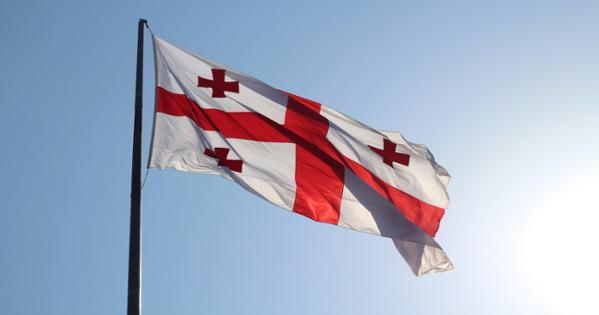Georgia's European Dream

Introduction and Overview
Located at the crossroads of Europe and Asia, Georgia was once considered the “beacon of liberty” in the South Caucasus, a shining example of successful democratization in the post-Soviet realm. And tied to that, Georgia’s primary foreign policy goal has historically centered on integration in the Euro-Atlantic community, specifically through EU and NATO membership. After rising to power in 2012, Georgia’s ruling party (the Georgian Dream) pledged to pursue a “pragmatic” relationship with Russia while continually working towards Western integration. Yet, despite these promises, Georgia has experienced significant democratic backsliding while pivoting towards Russia, and thereby hindering its chances of further Euro-Atlantic integration. This sharp departure in policy is widely attributed to Georgian Dream’s founder and informal leader, Bidzini Ivanishvili, who holds considerable business interests and assets in Russia. Nevertheless, the question of where Georgia’s true loyalties lie remains unanswered.
Georgia’s rapprochement with Russia is distressing because it has coincided with a time when Georgia’s EU ambitions have hit a snag. This assumes, however, that Georgia’s foreign policy must be either pro-Western or pro-Russian. This creates a false dichotomy and fails to explain Georgia’s seemingly contradictory actions. If we look past Ivanishvili’s personal motivations and influence, Georgian leaders’ ideology and foreign policy remain rather ambiguous, as the government pursues somewhat incompatible objectives of European integration and normalized relations with Russia. Georgia continues to convey interest in joining Euro-Atlantic alliances, signing an Association Agreement with the EU in 2014, establishing a NATO training center in Georgia in 2015, and contributing to NATO missions overseas, as well as applying for EU membership in 2022. However, the Georgian Dream has also strengthened ties with Western adversaries, joining the Belt and Road Initiative, signing a Strategic Partnership Agreement with China, increasing trade with Russia, and adopting anti-Western rhetoric. To assess Georgia’s positionality, it is essential to explore the potential reasoning and underlying logic of Georgian leaders’ statements and political decisions in context. Georgia’s path to EU candidacy has been marked by three critical junctures which help us to explain the inconsistencies of Georgia’s foreign policy: the 2008 Russo-Georgian war, the rise of the Georgian Dream party in 2012, and the 2022 invasion of Ukraine. While the return of great power politics has led many states’ economic and security policies to become further intertwined, this piece contends that the Georgian Dream’s pursuit of economic integration with competing great powers reflects a realist strategy in which Georgian leaders seek to maximize their geostrategic location and minimize vulnerabilities in state security.
2008 Russo-Georgian War
After the fall of the Soviet Union, Georgia was nearly a failed state, plagued by economic weakness and corruption. In response to rigged parliamentary elections in November 2003, opposition leaders holding red roses stormed the Georgian Parliament, leading to the resignation of Soviet-era leader Eduard Shevardnadze. The Rose Revolution was viewed favorably in the West as the first nonviolent transfer of power in the Caucasus and demonstrated Georgians’ commitment to democracy. This marked the beginning of a strained relationship between Georgia and Russia.
After several years of deteriorating relations between Georgia and Russia, tensions reached a breaking point following the April 2008 NATO summit in Bucharest, where NATO members stated Georgia could join the alliance once the country meets membership requirements. In August 2008, Russia invaded the breakaway regions of South Ossetia and Abkhazia in Georgia, which remain occupied to this day. This marked the first occurrence of full-scale Russian aggression against a sovereign nation since the fall of the Soviet Union, signaling that Moscow was willing and able to defend its old backyard. In the months that followed, Western leaders offered little support to Georgia, as the EU commissioned a report blaming President Saakashvili for igniting hostilities and the new US administration sought to ‘reset’ relations with Russia. As outlined in the following sections, the historical memory of the 2008 war is routinely politicized by Georgia’s ruling party to advance domestic and foreign policy objectives.
Democratic Backsliding Under the Georgian Dream
Since the Rose Revolution, Georgia had been ruled by pro-Western President Mikheil Saakashvili; however, allegations of corruption and abuse of power as well as his perceived role in the 2008 war severely diminished public approval of Saakashvili’s United National Movement (UNM) party. As Saakashvili neared the end of his second term, billionaire Bidzini Ivanishvili created the Georgian Dream party and formed a coalition of political parties to run against Saakashvili and the UNM. By uniting opposition groups, the Georgian Dream coalition was able to mobilize public support and win the successive 2012 parliamentary and 2013 presidential elections. Once in power, however, the Georgian Dream consolidated their power through patronage politics, electoral fraud, and targeted prosecution of opposition leaders and journalists.
The Georgian Dream has always included European integration as a part of their party platform, as 80% of Georgians support this goal. Facing a fragmented political opposition, Georgian Dream leaders only need to appear to be working towards these goals. As such, progress towards membership has tended to be symbolic. For example, Georgia’s constitution was amended in 2017, inscribing the government’s commitment “to ensure Georgia’s full integration into the European Union and the North-Atlantic Treaty Organization.” Simultaneously, amendments were included to abolish direct presidential elections, strip presidential authority, and concentrate power in the hands of the Prime Minister and Parliament.
The Georgian Dream’s actions reflect a strategic manipulation of the European integration process to stay in power. To deflect blame and distract from the stalled reform process, leaders of the ruling party accuse opposition leaders of sabotaging the country’s EU prospects. The government’s failed impeachment of President Salome Zourabichvili this fall illustrates these tactics. Since breaking with the party, Zourabichvili has expressed sharp criticism of the Georgian Dream and stated that Georgia did not deserve EU candidate status in 2022. During her visits with EU leaders at the end of the summer, the Georgian Dream initiated impeachment proceedings against Zourabichvili, accusing her of undermining Georgia’s EU prospects by eroding confidence among EU leaders and exacerbating domestic polarization. Georgian Prime Minister Irakli Garibashvili and other members of the ruling party have asserted that granting Georgia candidate status would reduce polarization swiftly and dramatically. Following a series of meetings with EU leaders in early October, the Prime Minister expressed confidence in EU support for Georgia’s candidacy after receiving commitments from numerous member states.
War in Ukraine
The Georgian Dream’s policies since Russian invasion of Ukraine in 2022 have increased tension between the Georgian government and Western leaders. Georgia’s reluctance to join EU sanctions against Russia has frustrated Western leaders who believe prospective EU countries should seek alignment with EU foreign policy. Georgian Prime Minister has pushed back, calling sanctions ‘ridiculous’ as Georgia’s annual trade turnover with Russia is equivalent to “what the EU trades in four days with Russia.” Like many other developing nations, Georgia’s economy is highly dependent on trade with Russia. The onset of the war has only exacerbated these problems. In 2022, Georgian exports to Russia increased by a modest 6.8%, but Russian imports to Georgia jumped by 79.4%. As of April 2023, Georgia’s reliance on Russian imports rose to 85% of total gasoline and diesel imports and 96% of flour and wheat imports. This rapid increase in trade volume has helped Georgia’s economy rebound after a period of steep economic decline during the Covid-19 pandemic. While sanctions might deliver a modest blow to Russia, the ramifications could be devastating to Georgia.
The Georgian government’s rhetoric stirred further controversy at the May 2023 Global Security Forum, when the Georgian Prime Minister stated that one of the main causes of the war in Ukraine was NATO enlargement. Garibashvili was widely condemned by Georgia civil society organizations and the international community for echoing Kremlin propaganda, an accusation refuted by Georgia’s ruling party. It’s possible the statement was not intended to be politically charged. After all, Russia did invade Georgia following Georgia’s bid for NATO membership. The discrepancy in Western responses in 2008 and 2022 remains a sore spot for Georgian leaders, who are vocal in their resentment of the ‘unfair’ and ‘hypocritical’ treatment of Georgia.
Conclusion
As the EU’s final verdict on Georgia’s candidacy draws near, Georgian Dream leaders are scrambling to restore EU leaders’ confidence. Failure to obtain candidate status could jeopardize the Georgian Dream’s reelection chances in 2024, and their proclaimed strategy of appeasement towards the Kremlin has failed to discourage Russian provocation. In late August, Kremlin’s security council Deputy Chair Dmitry Medvedev threatened the annexation of South Ossetia and Abkhazia and recently announced plans to establish a permanent naval base in the occupied region. Russian encroachment on Georgia’s territory may help Georgia rehabilitate its image, but integration still hinges on perceived Western support. NATO has taken steps in the right direction, announcing a new "tailored support package" for Georgia, reaffirming support for Georgia’s territorial sovereignty and Euro-Atlantic aspirations, and meeting with Georgia’s Ministry of Defense to discuss prospects of strengthening ties with the alliance. Meanwhile, the EU’s deadline to decide whether to grant Georgia candidate status is fast approaching, and EU leaders are faced with an arduous decision. Granting candidate status would require the EU to overlook Georgia’s severe democratic deficiencies, while failure to do so risks strengthening Russian influence in the Caucasus.
About the Author

Alyssa Durnil is a master’s student in American University’s Comparative and Regional Studies program, specializing in Europe and Eurasia. Her research interests include transatlantic relations and security and governance in post-Soviet states. She seeks to understand the dynamics of state security in the post-Soviet realm and the role of institutions in shaping domestic and regional outcomes.